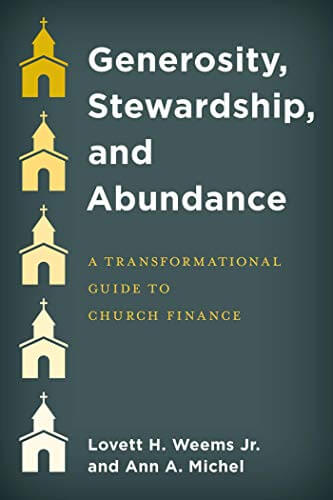In light of the current economic environment, how are churches reining in their budgets without reducing the quality of ministry? Last month, the Lewis Center asked Update readers to respond to that question. Most of those responding indicated the size of their congregations, and their responses tended to follow patterns related to church size categories. Some of the most common ways churches have sought to reduce expenditures without sacrificing the quality of their ministry are shared below.
Small Churches
Smaller churches are showing resourcefulness in moving through the current economic challenge. The most common practices that were reported involved economizing on curriculum expenditures. Many are developing their own church school curriculum, borrowing from other churches, or using free web or library resources. Sharing of Vacation Church School curriculum among churches appears to be common. Some adult classes are sharing their study books with another class. The second dominant theme among smaller churches is for members to take on tasks such as caring for the church grounds, cleaning the church building, and making minor and major repairs.
Mid-size Churches
A common cost saving practice among mid-size churches appears to be converting much of their mailing to online communication. Several churches have gone to an electronic newsletter. The savings have been significant, even for those churches that continue to mail a printed version to those requesting it. Reductions in staffing are also common among mid-size churches.
Large Churches
Staffing appears to be the most common area for cutbacks among larger churches, where personnel costs are often high. In both mid-size and large churches where staff cuts are reported, they indicate that the economic crisis was an opportunity to rethink the effectiveness of some positions and to restructure in ways that appear to be as effective as before the cuts. Often staffing arrangements had not been examined carefully in recent years until the economy required such attention.
Remember, our question only asked for reductions that did not negatively impact the quality of the congregation’s ministry. There are probably numerous other cutbacks that did reduce the church’s effectiveness and thus were not reported.







